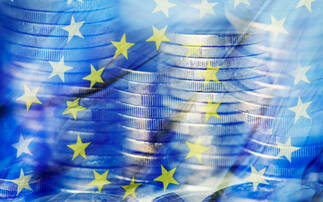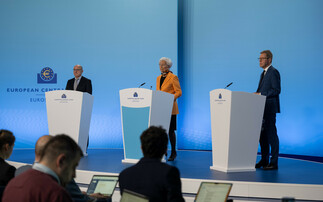While 2016 was dominated by the Brexit vote, Donald Trump's US Presidential Election victory and Italy's referendum, fund managers have warned geopolitical risks remain high in 2017 - particularly in Europe.
Elections will impact countries which produce 70% of the continent's GDP, with the Netherlands, France, Germany and potentially Italy all going to the polls to decide the direction of Europe's future.
The rise of populist parties is an overarching theme. From the leader of the National Front in France, Marine Le Pen, to Geert Wilders - head of the far-right Party for Freedom in the Netherlands - each have their own agendas for how their respective countries should be run.
GAM's Gallagher: Why there is 'pretty good potential' for an earnings rebound in Europe in 2017
However, they all have one thing in common: the potential to create ructions in European markets.
Market commentators have already highlighted some of the detrimental effects of a populist candidate. In particular, they note populism usually leads to protectionism, which can affect trade and the growth of an economy.
A recent study by ETF Securities highlighted migrant growth can in fact lead to an increase in the average wage. Conversely, a lack of economic growth caused by protectionist measures, such as controls on migration, will hurt businesses and the consumer in the long term.
Didier Saint-Georges, managing director and member of the investment committee at Carmignac, commented: "The political tailwind supporting political platforms that resort to old protectionist rhetoric is concerning.
"It ignores the fact in a world moving towards mercantilism, where the political balance of power matters greatly, each European country will be in a much weaker position on its own than if the European Union gets its act together."
Germany
Even German Chancellor Angela Merkel, who is often seen as the rock of the EU, is under pressure from populist opponents for the first time in years. Her open-door policies on refugees have allowed far-right party Alternative for Germany to rise from obscurity to gain around 13% of the vote in recent polls.
Hartwig Kos, vice CIO of SYZ Asset Management, warns the German election in September could be the 'inflection point' which could end a six-month bull run for European markets, as investors are simply not accustomed to political instability threatening the continent's largest economy.
"Although Merkel will be Chancellor, the far-right party could excel in the election and have a result that is much better than the market anticipates, weakening Merkel's power internally.
"I would not be surprised if the market takes this badly, as political stability was one of the aspects which was taken for granted in Germany," he said.














